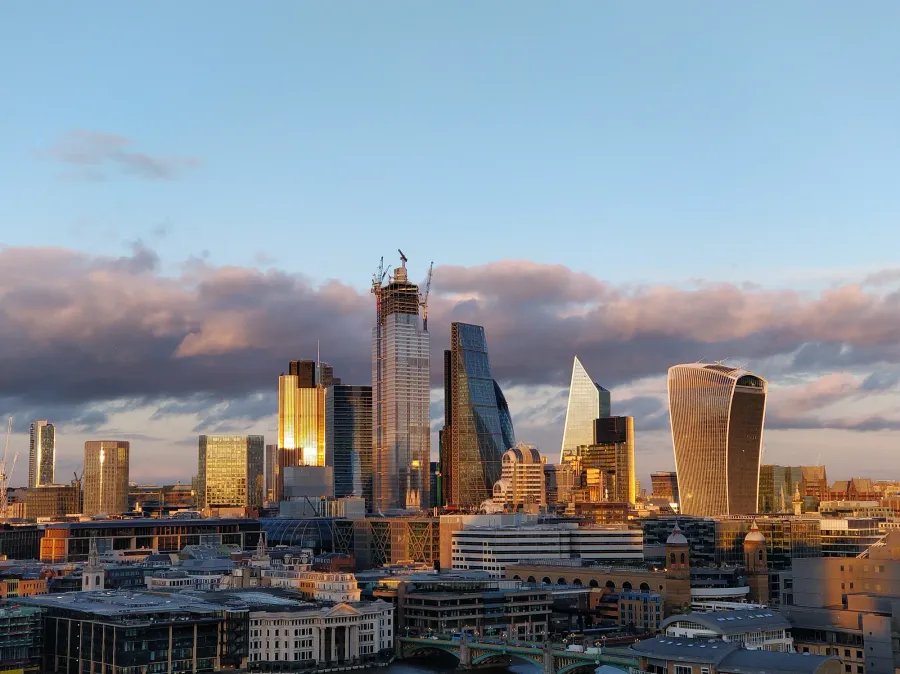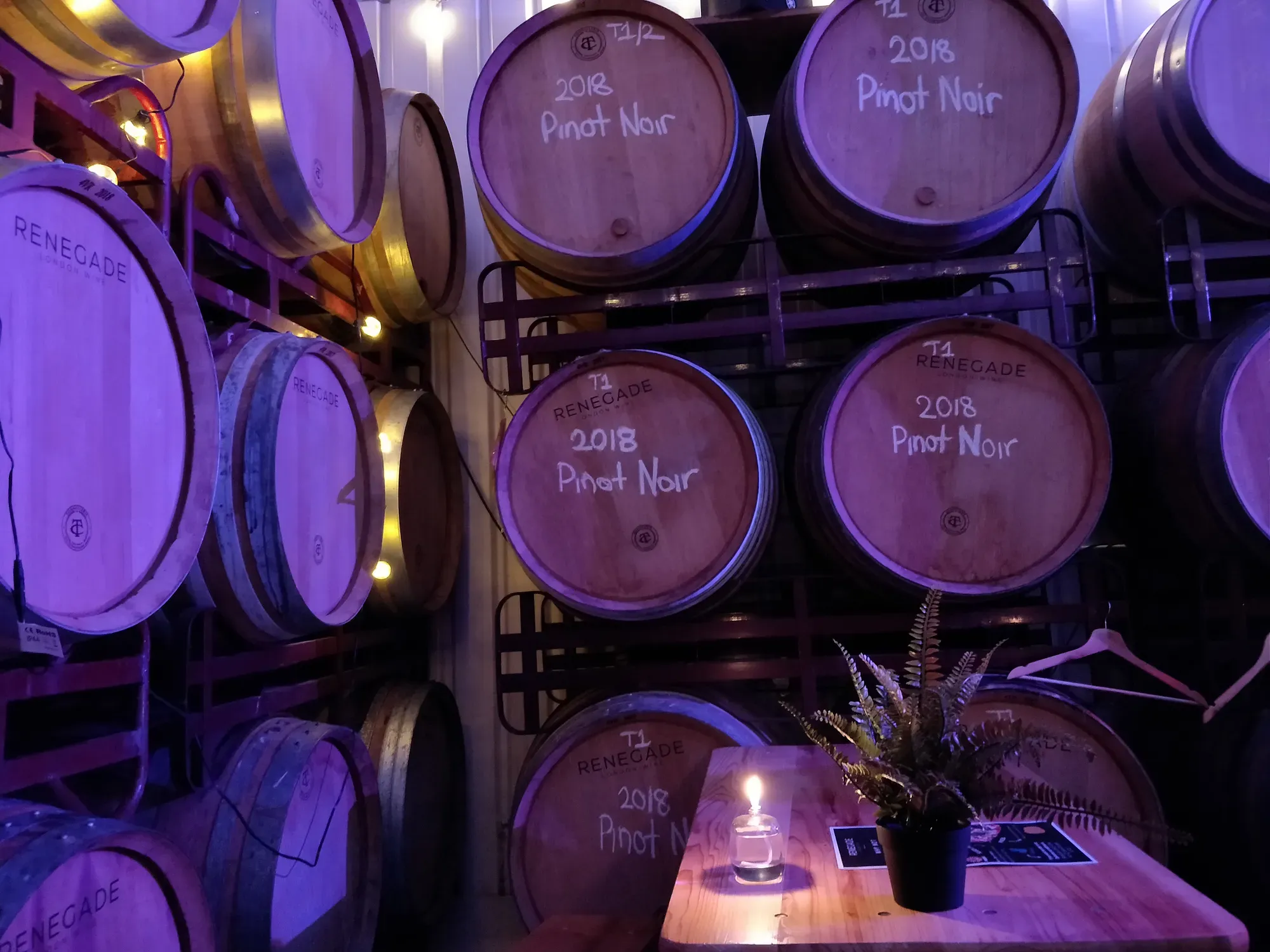
Urban Wineries in London
Wine from London? Certainly! 🍷 Ever heard of Forty Hall Vineyard, Chateau Tooting, London Cru, Renegade London Wine, Blackbook Winery or Vagabond Urban Winery?
As we were thinking about organising another private wine tasting, we were looking for interesting wines to focus on. At first we were hesitating, but after a little bit of research we quickly settled on the theme for our next tasting: Urban Wineries in London.
A side effect of our planning activities will be that we will post a little series of articles about urban wineries in general and the ones we include in our tasting in particular.
In 2018, we managed to surprise many of our friends with a great selection of wines from Bulgaria. And despite the fact that urban wineries are not an entirely new trend and many have been around for a couple of years already, many people have still hardly ever heard about this concept. By picking another niche theme, we hope to be able to present some interesting wines to our friends that most of them have never tried before.
What even are Urban Wineries?

With our motivation about why we developed an interest in urban wineries out of the way, it might be a good idea to provide a little introduction on what urban wineries even are.
Generally speaking, it is probably difficult to define. In some European wine-growing countries, urban wineries have a long tradition. Vienna in Austria seems to be a great example of a longstanding community of urban wine producers as outlined in “Vines and the City: Urban Vineyards are a Growing Trend” (TheTaste.ie).
Not necessarily urban, but starting on a similarly small scale as most urban wineries, we would also like to briefly mention the Garagistes from Bordeaux which gained an increasing influence in the 1990s.
More recently, or possibly even at the same time, urban wineries became a trend in the USA as highlighted in “America’s Urban Winery Revival: What Does It Mean?” (Eater). In this context it is sometimes likened to the craft beer movement for instance in “The rise of the urban winery” (Wine Awesomeness, the black label). Urban wineries in the USA started popping up many years ago, but the trend quickly accelerated in the past twenty years. Being brought to people’s attention again by the trend in the USA, this concept began spreading around the world and found its way back to Europe.
London often is at the forefront of changes and developments. When it comes to wine, London was lacking behind according to “How wine-making came to London” (Spectator LIFE) and now is finally catching up with the metropolitan trend of making wine within an urban environment.
Personally, I first came in contact with urban wineries at the excellent Wine Car Boot wine market in November 2015. As I was browsing around and sampling a wide range of wines, I also stopped at London Cru, who claimed to be a London winery. I must admit that it confused me, and I am still on the fence about the concept. But some of the wines I tried were not bad at all.
More recently, again at Wine Car Boot but this time in Summer 2018, I briefly talked to the guys from Renegade and actually really liked two of the wines they presented. That was the point when I decided to take a closer look at London’s wineries. But it took another few months, before I realised that this would be a great theme for another private wine tasting I could organise.
Where do Urban Wineries get their grapes from?
Urban Wineries overall are a broad category. From my view, with the Urban Wineries in London, there are three different concepts. Key is where they source the grapes from — which also defines the commercial model to some degree.
There are the ones which use grapes that grow within London — somewhere within the M25. Given the limited vineyard space in London itself, only relying on grapes grown within the city boundaries will mostly only allow for a relatively small production output. Thereby it is probably hard to make a living from it, or to make a living from only selling wine.
The second approach are urban wineries which use English grapes from around the South East of England, vineyards surrounding London. This increases possible production volumes massively, but still limits the winemakers to the grape varieties that grow around this climate and soil conditions.
Maybe a more creative way to build up an urban winery is by buying grapes in from other areas, other countries even. This is what allows urban wineries to make wines you cannot find by any more traditional English winemakers.
But of course, the logistics of shipping in grapes and the disconnect this causes from the local area where the grapes are grown take a bit away from an idyllic ideal of a local winemaker. In this regard, I share the view of Tim Atkin MW and also think that using English grapes might be the most promising way forward.
What Urban Wineries are based in London?
So, with the general introduction and the different approaches laid out, let’s briefly introduce the London Urban Wineries we will explore in more detail over the coming weeks. I found “Meet London’s urban winemakers” (foodism) provides a good overview, but I thought it was missing some London Urban Wineries.
From what I could find, it was most likely that Forty Hall Vineyard launched first in Enfield, EN2, in 2009. Forty Hall is a social enterprise for local people supported by winemaker Will Davenport from Davenport Vineyards. They grow their own grapes on a vineyard just within the M25, producing sparkling and still wine — we’re already curious to try their sparkling! 🍾
The second initiative might have been Chateau Tooting from Tooting, SW17, which also launched in 2009. They only do a single wine every year from “grapes grown in gardens and llotments across the capital”, as they put it. I remember hearing of it a while ago, but then forgot about it again. Now we got our hands on some bottles. We really have no idea what to expect from this one, but we’re looking forward to checking it out.
Then in 2013 it looks like more professional, commercially focused players joined in when London Cru started churning out wine in Fulham, SW6, backed by Roberson Wine. Initially, they sourced grapes from all over Europe, but currently focus more on English growers.
From then on, the trend has accelerated with Renegade London Wine being established in 2016 in Bethnal Green, E2. As London Cru, Renegade also began bringing in some English grapes.
Around 2017, Blackbook Winery was established in Battersea, SW8. While I had heard about all the other urban wineries before, this is the only one I newly discovered when I started doing some research for the upcoming tasting. They strictly focus on grapes from England and don’t source grapes from other countries at all.
Finally, the latest addition we know of is the Vagabond Urban Winery founded just in 2017 or 2018 also in Battersea, SW11 by Vagabond Wines. They prioritise English grapes, but not exclusively. Besides their winery, they have six wine bars across London, each with plenty of wines to sample by the glass, thanks to these fancy dispenser machines. Once you start pouring a tiny taster here and a tiny taster there, it gets difficult to stop just trying yet another one…
If we have not overlooked any new project, there are currently six urban wineries active in London. Some smaller, somer bigger, yet all are producing wine right now. We heard about at least one more wine making effort which is currently under way, so maybe there will be another urban winery in London later this year.
What’s next?
This introduction and overview is just the start. As we learn more about the different Urban Wineries in London, and most importantly taste more of their wines, we will write up more posts about our learnings to shed some more light on this quirky trend of setting up winemaking facilities in metropolitan areas, often away from vineyards.
But if you can’t wait and want to read more, here are three more articles about Urban Wineries in London that we found interesting:
- Ben Norum in Londonist:
“London Cru: A Visit To London’s First Winery” (Jan 2014) - Daisy Meager in VICE MUNCHIES:
“Meet the Guys Making Wine Under a London Railway Line” (May 2017) - Simon Falush in Evening Standard:
“London’s only vineyard to yield 20 tonnes of grapes after summer heatwave boost” (Sep 2018)
(This research was made possible by plenty of flat whites from Kaffeine, Clerkenwell Grind, Dose Espresso in Farringdon, The Coffeeworks Project at Battersea Power Station, Notes Coffee in Moorgate.)
Please Share!
First published in
February 2019.
Also available at https://medium.com/unscrewme/urban-wineries-in-london-a39f0cc0996f